Jim McGee: Profiles in Knowledge
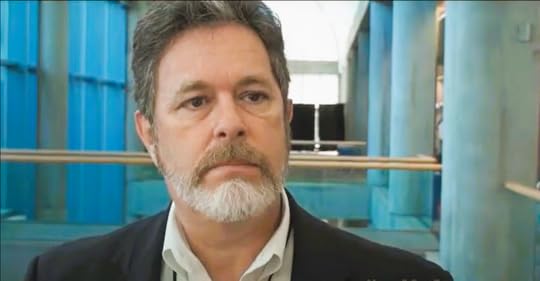
This is the 116th article in the Profiles in Knowledge series featuring thought leaders in knowledge management. Jim McGee is a retired consultant who focused on knowledge work. For over 40 years, he helped executives and organizations become more effective by making better use of information and communications technology. He was an entrepreneur, senior executive, professor, author, blogger, speaker, systems developer, designer, and consultant. He worked with senior executives in organizations to formulate, structure, and solve problems in the effective use of information technology in complex knowledge work settings.
Jim worked with organizations to recognize patterns and make sense of complex situations. He collaborated with clients to design and build new business patterns and practices to take advantage of these situations and opportunities. His specialties included knowledge work practices and design, organizational assessment, program design, business design, curiosity, blogging, and personal knowledge management. He has been blogging for over 23 years.
We first met at a KM Chicago meeting in 2006. We were also together at KMWorld 2009 and at the 2010 Enterprise 2.0 Conference in Boston. Jim’s site features this quote:
The cure for boredom is curiosity. There is no cure for curiosity. — Dorothy ParkerBackground

Jim McGee was a founder of Diamond Management & Technology Consultants (now part of Price Waterhouse Coopers) helping it grow from 25 employees in 1994 to over 1,000 consultants and $260 million in revenue in 2000. Jim divides his time between writing, teaching, and consulting. Jim has an undergraduate degree in Statistics from Princeton and an MBA and Doctorate from Harvard Business School.
How do we become more competent and effective at doing knowledge work? That’s the fundamental question I ask and try to answer on this blog. It’s a deliberately broad question for several reasons.
Specialization is overrated; the challenges that matter don’t come neatly wrapped with instructions. My own interests are catholic. I’m interested in design, learning, knowledge, organizations, strategy, and technology among other things.
Curiosity has gotten a bad rap, especially within large organizations; it needs to be celebrated and encouraged. More and more of the work we are called on to do is knowledge work; we all need to get better at doing it and we can use all the help we can get.
I started McGee’s Musings in October of 2001 when I was on the faculty at Northwestern’s Kellogg School of Management as a way to share thoughts with my students. While they sometimes struggled with the notion that I often had more questions than answers, that seemed to cause less concern to those who came here. It’s become the primary place where I work out ideas for myself. Sharing them helps my own thinking immensely and seems to be useful to my readers.
No one pays me to write this blog or to say particular things on it. I pay webhosting and bandwidth costs for this blog out of my own pocket. I do not run ads here and do not expect to. My day job as a consultant was helping clients on issues related to the management and use of technology. I do not identify clients by name or in any way that would make them identifiable unless I have their explicit permission (and generally not even then).
I’ve been an entrepreneur and I’ve been around the technology world for a while. I believe, and I have found, that transparency is a good thing. If I encounter a situation where my previous connections or other circumstances bear on what I write here, I disclose the pertinent details or find something else to talk about instead.
As David Weinberger suggests in his blog disclosure (which I cribbed from for this disclosure), I use my judgment. I choose to err in the direction of assuming that anyone reading here is also capable of exercising judgment.
 EducationHarvard Business SchoolDBA, IT, Strategy, & Organization Design, 1985–1991MBA, Strategy, 1978–1980Princeton University — AB, Statistics, 1971–1975ExperienceQuinlan School of Business, Loyola University Chicago — Adjunct Faculty, 2016–2022New Shoreham Consulting — Managing Director, 2007–2022Sagence, Inc. — Principal, 2014–2022Collaborating Minds — Founder, 2011–2020DePaul University — Adjunct Faculty, 2011–2014Huron Consulting Group — Director, 2003–2007Northwestern University, Kellogg School of Management — Clinical Professor of Electronic Commerce and Technology Innovation, 2001–2002Diamond Management & Technology Consultants — Chief Knowledge Officer, Chief Learning Officer, Founding Partner, 1994–2001Ernst & Young Center for Information Technology and Strategy — Research Fellow, 1991–1994Harvard Business School — Research Associate, 1984–1991ProfilesLinkedInTwitterJVM AssociatesResumeCVAcademics and Faculty, Kellogg School of ManagementCVBioContentBlog ArchivesLinkedIn PostsNorthwestern UniversityCourseseLearning Overview and TrackingArticles
EducationHarvard Business SchoolDBA, IT, Strategy, & Organization Design, 1985–1991MBA, Strategy, 1978–1980Princeton University — AB, Statistics, 1971–1975ExperienceQuinlan School of Business, Loyola University Chicago — Adjunct Faculty, 2016–2022New Shoreham Consulting — Managing Director, 2007–2022Sagence, Inc. — Principal, 2014–2022Collaborating Minds — Founder, 2011–2020DePaul University — Adjunct Faculty, 2011–2014Huron Consulting Group — Director, 2003–2007Northwestern University, Kellogg School of Management — Clinical Professor of Electronic Commerce and Technology Innovation, 2001–2002Diamond Management & Technology Consultants — Chief Knowledge Officer, Chief Learning Officer, Founding Partner, 1994–2001Ernst & Young Center for Information Technology and Strategy — Research Fellow, 1991–1994Harvard Business School — Research Associate, 1984–1991ProfilesLinkedInTwitterJVM AssociatesResumeCVAcademics and Faculty, Kellogg School of ManagementCVBioContentBlog ArchivesLinkedIn PostsNorthwestern UniversityCourseseLearning Overview and TrackingArticlesPersonal Knowledge Management (PKM)
Personal knowledge management is a design problem not a selection taskKnowledge is personal, manage it that wayPersonal knowledge management and body of workPKM Isn’t About AppsPutting Personal Knowledge Management in ContextCreating your knowledge workshopAn old look at a new idea — the value of personal knowledge managementBuilding a personal knowledge management environmentBlogs as personal knowledge management toolPersonal knowledge management in KM MagazineFour questions to begin your personal knowledge management practice
What deliverables are you expected to create?When and how do you reflect on how and what you create?Where do you feel most/least comfortable in your work?What are the edges you encounter in your work?Knowledge Management
Knowledge work as craft workThe problem of incentives in knowledge workA reading list for aspiring knowledge workersLearning and knowledge management in startup modeKnowledge management matters more to you than to your organizationEntropy and knowledge managementKnowledge, Community, and Dunbar’s Number — Larry PrusakPushing for simpler knowledge management (references Learning lessons or lessons learnt?)Knowledge management = creating environments for learningMore on knowledge management as learning supportKnowledge management: the newest battle between the neats and the scruffiesMaking online forums workMy worst technology mistake (references KM, Rushing the Technology Curve and Failing)Grassroots knowledge managementThe power of grassroots in knowledge managementThe grassroots are where knowledge management must begin New York Times on Knowledge ManagementKM and Blogs
Knowledge management and weblogsWeblogs and knowledge managementWeblogs and knowledge management, part 2Weblogs and knowledge management: Don’t forget to KISSEnterprise 2.0
Culture, Process, and Practice — Effective leverage for Enterprise 2.0Reflections from the 2010 Enterprise 2.0 conferenceA dozen papers you should read in the world of Enterprise 2.0KM, Innovation, and Knowledge Creation
Knowledge management and innovationKnowledge management, reinvention, and innovationInnovating innovation: An Interview with Scott Anthony of InnosightJohn Seely Brown on knowledge creation and storytellingThe power of questions to create knowledgeLatest thoughts on our digital worldOrders of OrganizationNurturing a knowledge ecology (references Ten Ways to Create a Knowledge Ecology)Strategies for implementing Enterprise 2.0Review of Intertwingled: Information Changes Everything Review of Planning for Everything: The Design of Paths and GoalsGetting a better handle on knowledge stuff
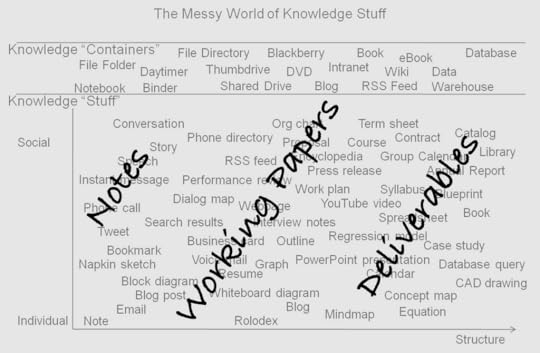
Circles of knowledge and boundaries of ignorance
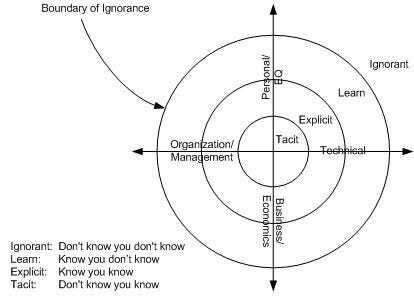
Enterprise Systems Journal (ESJ)
IT Learning at the Boundaries of Your IgnoranceTool-and-Die Makers in a Knowledge EconomyGet Better at Reinventing the WheelThe Fundamental Secret to Improving Knowledge WorkTrust, Verify, and TriangulateLegacy Systems: Why History MattersDesign as a Signature Skill for the Knowledge EconomyWhy You Need a Personal Knowledge-Management StrategyCrafting Uniqueness in Knowledge WorkA Strategy for Improving Knowledge WorkThe Invisibility of Knowledge WorkImproving Systems: Forget Architecture — Look at the BuildingsCareers: Four Areas for Building Skills to a “T”
1. Project Planning and Management
Project management has become a highly specialized field in its own right. Projects with specific objectives, simultaneously multiple and limited resources, and finite timelines are the fundamental mechanisms for managing innovation within organizations. All T-shaped knowledge workers have to develop a basic level of skill at planning and managing project-based activities above and beyond any ongoing organizational processes they must also manage. Those basics include the ability to specify achievable objectives, break down and sequence activities, match resources against activities, and then manage the mix and balance of time, budget, and quality over the life of the effort.
2. Finding and Framing Problems
Problem-recognition and problem-solving skills are deep and rich reservoirs of known solutions to familiar problems. The ability to turn an amorphous and messy situation into a problem that might potentially be solved is a key skill any knowledge worker must develop. The lazy (and all-too-common) way to find and frame problems is to map features of the current situation directly into solutions already known. A more productive approach is to develop a facility with analogies and metaphor, both verbal and visual, to extract salient features of the current mess and create new maps that intentionally mix elements from multiple specialty areas. Framing a problem adroitly can be the difference between failure and creating a new market niche.
3. Information Literacy
In today’s environment of information overabundance, we must become more adept at finding, filtering, and assessing relevant information. This includes the ability to formulate information-gathering strategies more robust than typing a handful of keywords into Google. Information literacy demands knowledge of information sources and their biases/reliability, the ability to work effectively with information specialists (such as research librarians), and the ability to organize and manage the flow of incoming raw data. Information literacy also encompasses skill at filtering and distilling the abundance of raw information into more concentrated and refined outputs.
4. Horizontal Learning
As experts, our learning skills are optimized to elaborate and fill in an inventory of at-the-edge cases and special situations. We fill in holes and extend the range of subtleties we can address. Instead of digging deeper holes, horizontal learning is focused on understanding the new landscape and how it relates to landscapes you know all too well. Horizontal learners must pick up the essential vocabulary and basic grammar of the new territory, then determine how to follow (and later participate in) the typical conversations that take place there. Often, the fastest way to learn horizontally is to explore the history of the area you are studying. Who are the key players and institutions to be aware of? How have they organized and structured the field?
Four Keys to More Effective On-The-Job Learning
1. Be Mindful
When we are expert at something, we have gone beyond the need to think about what we are doing. Practice and rehearsal let us perform without conscious thought. Learning requires a different mode of thought: one of mindfulness. When we are mindful, we are performing and paying attention to how we are performing at the same time. We need to learn how to cultivate mindfulness and develop perspective on when best to employ it.
Ellen Langer of Harvard University identifies three characteristics of mindfulness and mindful learning:
Continuous creation of new categoriesOpenness to new informationImplicit awareness of more than one perspectiveAnother way to think of learning mindfully is to view it as putting the basics of scientific method — hypotheses, experiment, data collection, and interpretation — into action.
2. Take Time to Reflect
The late Donald Schon of MIT was one of the earliest to study organizational learning. His work focused on the role of reflection in knowledge work which, in many ways, is a synonym for mindfulness. Schon identified how effective knowledge workers, from architects to executives, used reflection to build better “theories of action.” Reflection is a key tool for examining links between actions and outcomes, particularly when those outcomes are either better or worse than expected.
The U.S. Army has innovated in this arena by creating techniques and cultural norms of conducting After Action Reviews (AAR). An AAR is a “time out” from the action to ask three key questions:
What just happened?How did that differ from what we were expecting?What does that suggest we do differently next time?An AAR can take five minutes as a “process check” at the end of a meeting or a day-long workshop after a major project milestone or event. The key is to take the time as an investment in ongoing performance improvement.
3. Map Your Ignorance
New learning always connects to something we already know. Much like building a brick wall, new learning needs to connect to what we already know. It is nearly impossible to learn something totally new to us. Trying to keep track of everything you know isn’t very helpful, but developing a sense for the edges of your knowledge will highlight the places where you can get the greatest return on your learning time.
This can be as simple as a running list of open questions and stuff to read or as complex as a personal curriculum map of developmental areas you are working on. Whatever approach you choose, focus on areas where you know just enough to be uncomfortable.
4. Enlist Your Social Environment
For all the limits of conventional schools, they have one important characteristic worth emulating; they are social environments where learning is valued. They are places where it is safe to not know; where you can seek help from those who know more than you and from those who are working through similar learning struggles.
If you hope to succeed in learning within your work environment, you need to find or create a similar environment. How hard that will be depends on the culture of the organization, but informal efforts to assemble a small group of like-minded learners should succeed anywhere.
Building Your Knowledge Workshop
1. Maintain Your Portfolio
A knowledge worker is more artist or writer than factory worker or plant manager. Defined by your body of work, rather than the quantity of output you produce or the empire you oversee. The better organized and maintained your portfolio of deliverables, the better you can display your qualifications and the better you can discern the patterns of your best work.
Maintaining your portfolio is a question of what to keep, what to throw away, and how to organize what you keep. At a minimum, keep copies of final deliverables. You should also keep the materials that will let you reconstruct why and how you created that deliverable, including project management materials such as scope definitions, work plans, risk assessments, and the supporting materials used to identify and resolve issues encountered along the way. Absent legal restrictions, dispose of everything else. Organizing around projects is simple and understandable. At the level of the individual, additional structure is likely more trouble than it’s worth.
2. Manage Your Learning
Maintaining your portfolio will make you more effective than the average knowledge worker. Further benefits accrue once you have the portfolio in place. An organized portfolio contains the raw materials to fuel learning. At the most rudimentary level, simply reviewing your portfolio from time to time will highlight your development and identify skills that wouldn’t otherwise be evident.
A portfolio also makes it easier to reflect on lessons learned and identify useful generalizations grounded in your work. Techniques such as After Action Reviews or documenting case studies can further identify and summarize lessons learned and approaches worth developing.
As you gain experience and learn by reflecting on your completed work, you might shorten the interval between action and reflection. Experiment with Weblogs or other journaling techniques to discover what you are learning that you can put back into your knowledge work practice. These reflection techniques let you ask what worked, what didn’t, and what caught you by surprise. Encourage your teammates to try the same techniques and learn more by sharing your reflections and questions with them.
3. Master Your Toolkit
Over the last 15 years, we’ve created an array of digital tools to make knowledge work easier. There’s an equally rich array of tricks and techniques to make work more effective. We’ve invested too little time in learning to use them to full effect. We need to be more systematic in looking at knowledge-work tasks and seeking ways to apply tools more effectively.
With portfolio in hand, you can explore questions of how your tools helped and hindered. That will lead you to insights about better ways to use the tools you have, and to search for tools that might replace the ones you are comfortable with. This implies that you need to acquire skill and discipline in balancing time between exploiting today’s toolkit and upgrading it over time.
Creating and maintaining a portfolio of your knowledge work is the linchpin of this strategy, providing the raw materials to make learning happen faster and improve your toolkit over time.
Articles by OthersN Cs of topic X (references Fun with constraints, knowledge, and design)More Observable Work by Greg LloydJack VinsonTaggedSearchJim told the story of his realizing that all this “knowledge management” stuff he’d been recommending for his clients and for his business didn’t mean much if his own knowledge management house was not in order. How could he, as a knowledge worker, recommend these systems when he couldn’t find articles and reports he had written six months prior?
This realization is a key component of Jim’s description of what knowledge work is all about. Not only are we doing work “that our mothers don’t understand,” we also need to be evaluating what we do on a regular basis. Are we performing up to our own expectations? Where can we be better? What new tools out there might ease some “friction” in our knowledge work?
Communities, Conferences, and PresentationsSIKM Posts KMWorld 2009 B105: Changing/Resetting the Enterprise With PKM & Social Software ToolsNew Friends and New Perspectives from KMWorld 2009Managing your career, skills, and knowledge base across organizations and across timeManaging your career, skills, and knowledge base across organizations and across time
Virtual Meetings Technology UpdateTechnology Leaders - Virtual Meetings Technology Update
Why you need a personal strategy for knowledge managementTech Leader's Assoc: Why you need a personal strategy for knowledge management
Doing and Managing Knowledge WorkTUG2010 Keynote: Doing and Managing Knowledge Work
Ways to make sense of today’s technology environment for doing knowledge workDePaul University - Technology for Us seminar
Knowledge work, Knowledge workers, & Enterprise effectivenessTechnology for Us - Tech Leaders Association
VideosKMWorld 2009 Perspectiveshttps://medium.com/media/a62d6debc79a5854fec3d536ba45319f/hrefInnovation in Knowledge Workhttps://medium.com/media/5e20bf9660b17b569be673a6d510b1c5/hrefCminds member interviewhttps://medium.com/media/0abcd6017c8e07e7263883fd08fe9012/hrefBooksThink Inside the Box: Discover the exceptional business inside your organization with Tim Nelson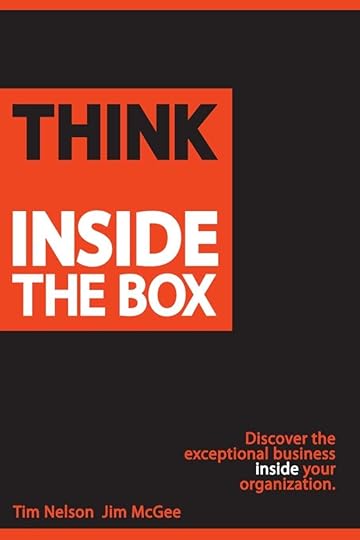 Managing Information Strategically: Increase Your Company’s Competitiveness and Efficiency by Using Information as a Strategic Tool with Larry Prusak
Managing Information Strategically: Increase Your Company’s Competitiveness and Efficiency by Using Information as a Strategic Tool with Larry Prusak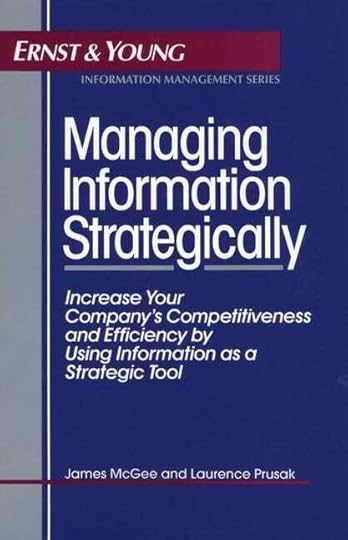 [image error]
[image error]



